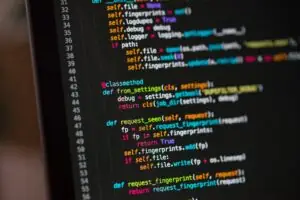Printing a double in C programming is a common task, especially when dealing with numerical data. In this article, we will explore various techniques and methods for printing double-precision floating-point numbers in C. We’ll also address common issues and provide solutions, making it easier for you to work with doubles in your C programs.
Using Printf for Double Printing
One of the most widely used methods to print a double in C is by using the printf function. Let’s delve into the details.
Printf Printing
The printf function is a versatile tool for formatting and printing data in C. To print a double, you can use the %f format specifier, which is specifically designed for floating-point numbers.
#include <stdio.h>
int main() {
double myDouble = 3.1415926;
printf("My double value is: %f\n", myDouble);
return 0;
}In the code above, we declare a double variable myDouble and then use %f in the printf statement to print its value. The result will be “My double value is: 3.141593.”
Double
In C, the double data type is used to store double-precision floating-point numbers. It provides higher precision than the float data type, making it suitable for tasks where accuracy is crucial.
Formatting Double Output
Formatting the output of double values can be essential for readability and precision control. Let’s explore some formatting options.
Decimal Places
You can control the number of decimal places printed by specifying the precision with the %.<n>f format specifier, where <n> is the number of decimal places.
#include <stdio.h>
int main() {
double myDouble = 3.1415926;
printf("My double value is: %.2f\n", myDouble);
return 0;
}In this example, we set the precision to two decimal places, resulting in “My double value is: 3.14.”
Scientific Notation
For very large or very small double values, you can use scientific notation for better readability. You can achieve this by using the %e or %E format specifier.
#include <stdio.h>
int main() {
double myDouble = 1.234567e-5;
printf("My double value in scientific notation: %e\n", myDouble);
return 0;
}The code above prints “My double value in scientific notation: 1.234567e-05.”
Common Issues and Solutions
While printing doubles in C, you may encounter some common issues. Here are a few and their solutions.
Printf Printing Issue
One issue you might face is that printf prints unexpected values when dealing with doubles.
Solution: Specify the Correct Format Specifier
Make sure you use the %f format specifier for double-precision floating-point numbers. Using the wrong specifier can lead to incorrect output.
Rounding Errors
Double-precision floating-point numbers have limited precision, which can lead to rounding errors.
Solution: Limit Decimal Places
To mitigate rounding errors, limit the number of decimal places you print using the %.<n>f format specifier, as shown earlier.
Conclusion
Printing a double in C programming is straightforward when you use the printf function with the appropriate format specifier. Remember to format your output as needed for readability and precision. By understanding the common issues and their solutions, you can work with doubles confidently in your C programs.
FAQ
Follow us on Reddit for more insights and updates.





Comments (0)
Welcome to A*Help comments!
We’re all about debate and discussion at A*Help.
We value the diverse opinions of users, so you may find points of view that you don’t agree with. And that’s cool. However, there are certain things we’re not OK with: attempts to manipulate our data in any way, for example, or the posting of discriminative, offensive, hateful, or disparaging material.